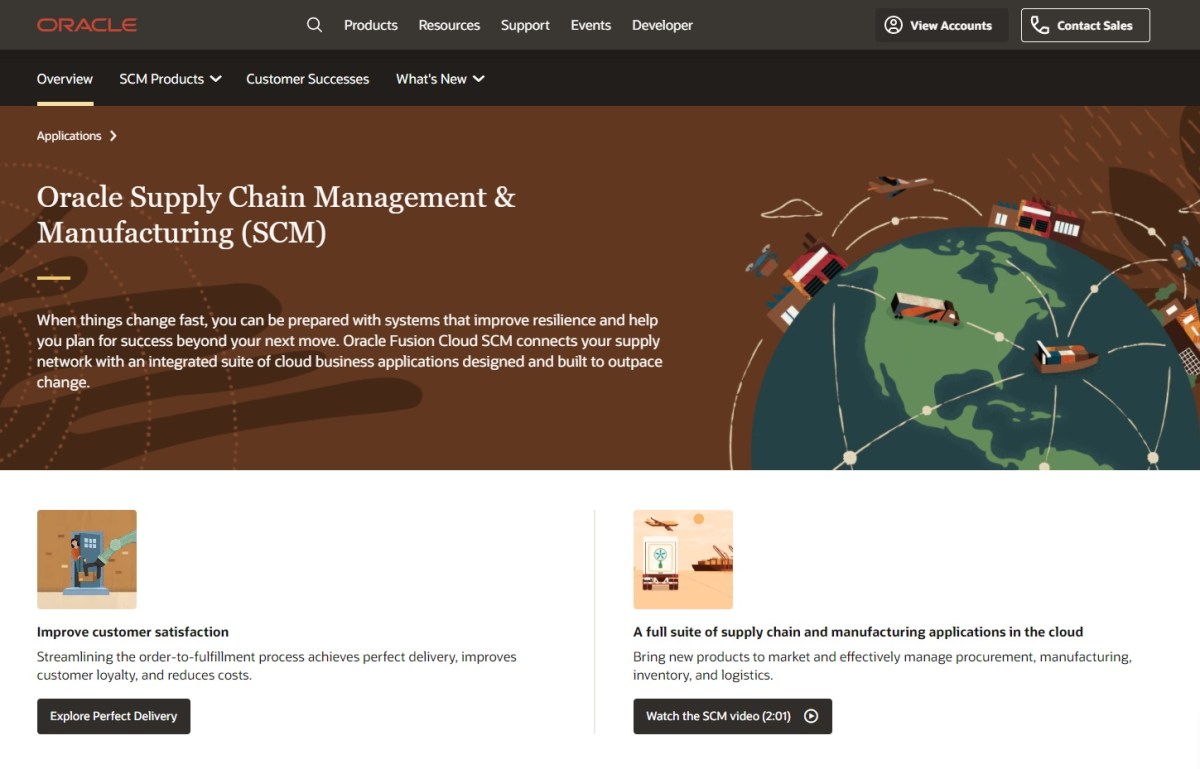Oracle has further built on its cloud platform with new updates to Oracle Fusion Cloud Supply Chain & Manufacturing (Oracle Cloud SCM) amid heightened disruption to global supply chains.
The updates in Oracle Cloud SCM are designed to help customers proactively respond to change, capitalise on shifting market opportunities, orchestrate frictionless operations, and drive sustainable business growth.
Oracle has added new capabilities to simplify the ordering process across channels to help ensure fast delivery of products and services.
New Production Scheduling maximises factory throughput and asset utilisation by helping customers manage production schedules with drag and drop capabilities, real-time analytics to monitor schedule performance, and real-time work order synchronisation.
New Order Management Capabilities improves productivity and user experience by enabling Oracle Order Management users to move on to other tasks while large orders are processed in the background, in addition to supporting the execution of secure and fast credit card payments.
New Procurement Capabilities streamline and simplify the procurement process with new auction pre-bidding capabilities for suppliers to better prepare for negotiations; master contract variables to improve the accuracy of contract information; and expanded purchase order distribution capabilities that help customers collaborate more effectively.
Maintenance Work Requests Through Oracle Help Desk improve responsiveness and enhance asset maintenance by enabling any employee to report facility and asset related maintenance discrepancies.
Lot Split, Merge, and Translate Services enable customers to split lots into smaller units, merge smaller lots into one large lot, and move units to a new lot (translate) using REST and file-based data import (FBDI) to meet partner support requirements.
New Oracle IoT Asset Monitoring & IoT Production Monitoring Capabilities enable customers to monitor key characteristics of their assets and gain a full view of their production line output.
Oracle has also added new logistics capabilities to help organisations plan and adapt to disruptions.
New Oracle Transportation Management (OTM) Machine Learning Capabilities help customers accurately predict transit times, reduce costs associated with unplanned delays, and increase logistics efficiency.
New Oracle IoT Fleet Monitoring Machine Learning Capabilities improve accuracy and cost savings by applying feature-based machine learning on OTM data to determine insights and predict transit times for planned shipments. In addition, drivers can now use the Oracle IoT Fleet Monitoring mobile app to complete a shipment.
Digitally Connected Logistics with IoT is an out-of-the box integration between OTM and Oracle IoT Intelligent Apps enables customers to reduce costs and streamline deliveries by using IoT sensor-based monitoring to track equipment, trailers, and pallets, as well as to monitor the condition of the cargo or inventory being transported.
Qualify Goods for Trade Agreements delivers improved margins and increased competitiveness as users can qualify products against global trade agreements to support customer sales orders and internal transfer order processes.
There are also new innovations designed to enhance product lifecycle management (PLM) and manufacturing operations. New features in Oracle PLM streamline processes related to the development and management of products and services. They include better history tracking and approval management; improved analytics and reporting for pending revisions and product catalogues; and dynamic security enforcement and setup configuration.

